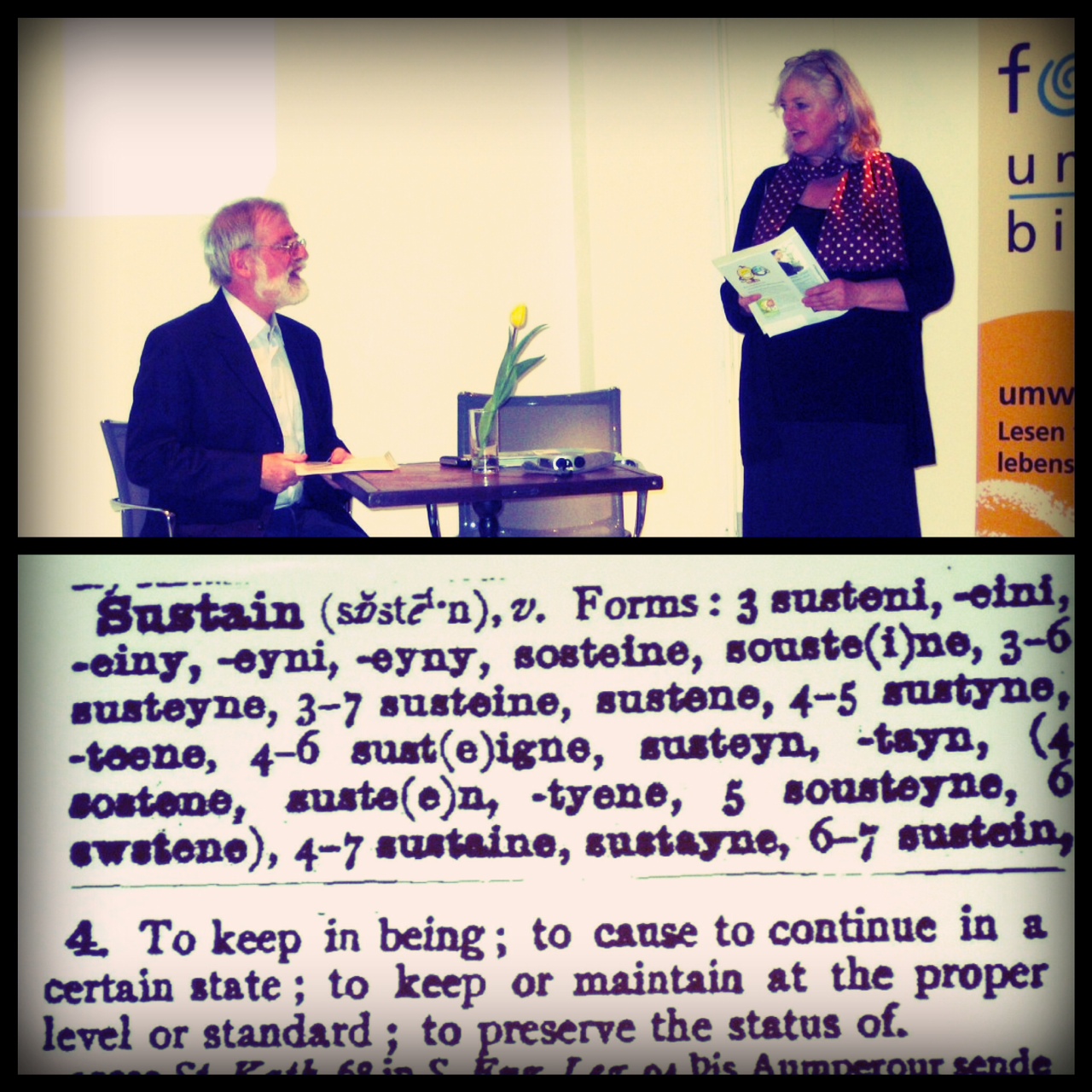What does sustainability really mean?
 Earlier this year I met Ulrich Grober, a German journalist and author, at The Hub in Vienna, where he presented his last book, “Die Entdeckung der Nachhaltigkeit. Kulturgeschichte eines Begriffs” (translates roughly into “Discovering sustainability. Cultural history of a term”) on invitation of Forum Umweltbildung. In his book he embarks on a journey from the historical past of the term sustainability (Nachhaltigkeit in German) to its present, describing the multitude of meanings and ways it has been used in various contexts.
Earlier this year I met Ulrich Grober, a German journalist and author, at The Hub in Vienna, where he presented his last book, “Die Entdeckung der Nachhaltigkeit. Kulturgeschichte eines Begriffs” (translates roughly into “Discovering sustainability. Cultural history of a term”) on invitation of Forum Umweltbildung. In his book he embarks on a journey from the historical past of the term sustainability (Nachhaltigkeit in German) to its present, describing the multitude of meanings and ways it has been used in various contexts.
He shows how one term even can change a movement by influencing public discourse. For instance, recall some 30 years ago we were all discussing environmental protection. Today, we have made a step forward integrating environmental protection into a more holistic understanding that considers all social, environmental, and economic aspects.
In the book Grober illustrates how one term can mean anything. Just think of the inflationary use of the word “sustainable” in TV ads and even politics: the shampoo that gets rid of dandruff sustainably (here sustainable is only 12 hours long!) or the sustainable motorway they are building in Switzerland (hmm, what could that mean...they only need to repair it every hundred years?). If everything is sustainable, then nothing is – the word loses its meaning.
Grober identifies quite a degree of ambiguity connected to the term sustainability – it can mean long-lasting or enduring when it is used in general context. But most of the time when we stumble upon it these days we can easily get the impression that sustainability is almost being supercharged with ethical demands or moral standards.
Let me give you my personal reflection: I think we need to take a step back again and reconsider what we would like sustainability to mean. I view sustainability as a rational, sensible, and smart concept that goes along perfectly with common sense. Thinking of nature and society around me, thinking of their limits – and thinking of my own and coming generations future – makes me convinced that we must leave short-terminism and the harmful pursuit of own economic interests behind. Instead we must employ a long-term perspective that takes into account these limits and interdependencies. We must provide our kids a world in which they can grow, thrive and live in accord with nature and each other. And that is even business-wise. Because who should we make business with when there's nothing left but devastated plains, suffering and sorrow?
Furthermore, this is not something new. Remember that almost 150 years ago people pondered similar questions. For instance Ernst Haeckel, who introduced the idea of ecology in 1866, saying that we need to economize on the diversity of nature. If we neglect the decrease in diversity, we risk collapsing the entire system. This has been proven countless times on a small scale – say, a garden pond. The difference now only is one in size: today we’re risking the world.
Sustainability ought not be viewed as something magic, nor ought it be swinging the moral hammer. It is but a sensible way to rethink our actions by considering their consequences. Start today!
Michael, Ulrich Grober and Tara Maria Lugmayr on sustainability (In German).
Michael Bauer-Leeb
